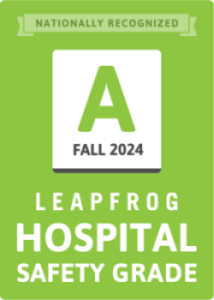Updated February 11, 2025
At University of Maryland Medical System (UMMS), we know that patients need the important people in their lives to help them in their healing journey.
In order to maintain a safe and healing environment, we have developed a visitor policy that outlines what's expected of patients, visitors (also called care partners) and team members when care partners are present.
Visiting Hours – Daily 8 am to 9 pm
Inpatient Visitors
For people visiting patients staying in the hospital:
- Number of visitors: Up to three
- Age restrictions: No age restriction; children under age 14 must be supervised by an adult.
- Overnight stays: A visitor may stay overnight with a patient in private or semi-private room. In semi-private rooms this depends on the needs and wishes of the other patient.
- Behavioral health and inpatient rehab units: The number of care partners allowed is based on the situation and decided by the treatment team. Visitors must call ahead and reserve a time slot to visit.
Masking
- See masking guidelines for patients, visitors and team members in our inpatient and outpatient facilities to learn when and where masks are required in UMMS facilities.
Behavior and Safety Expectations
- No disruptive, threatening or violent behavior, including the use of obscene language or gestures, will be tolerated. No weapons of any type are permitted.
- In order to create a healing environment, visitors must show respectful and quiet conduct towards all patients, other visitors and staff at all times.
- Clothing with obscene language is not allowed.
Patient Privacy Policy
- Federal law requires that hospitals comply with strict laws to protect patients' privacy. Staff will provide condition updates to a designated spokesperson or upon patient request.
- Taking photos or videos in common areas of the hospital is not permitted. In a patient room, you may not photograph, videotape or record audio unless you have the permission of anyone being recorded. This includes physicians, nurses, staff or other patients.
No Smoking
- No smoking or vaping is allowed in any indoor or outdoor space on our campus.
- Visitors may not give patients cigarettes, or any nicotine-related items, medications or drugs not prescribed by the patient's physician.
Who May Visit or Accompany Patients
- Care Partners (Visitors) are the friends and family who the patient has a significant relationship with and who provide support during the patients' stay. Care partners are chosen by the patient or, in the case of children (or others for whom another person has been empowered to makes decisions), by their parents, guardians or appointed decision maker.
- Designated Support Persons are a type of care partner who the patient specifically chooses to be physically present at the hospital to support the patient. This person may be a friend, family member, personal care assistant or disability service provider and may or may not be legally authorized to make decisions for the patient. The patient may change the designated support person throughout their stay.
- Communication with Designated Support Persons: If a patient with disabilities does not have a designated support person present at the hospital, staff will attempt to communicate relevant information with a patient's designated representative, in alignment with patient privacy requirements. Effort shall be made to communicate in advance of admission, if possible. The hospital shall inform the patient and any designated support persons, or care partners, of this policy.
The Perinatal Center at UM St. Joseph Medical Center
Only one visitor per patient is allowed. No children under the age of 12 are permitted.
